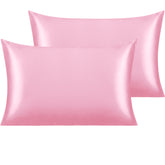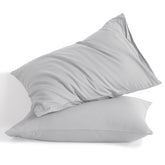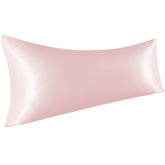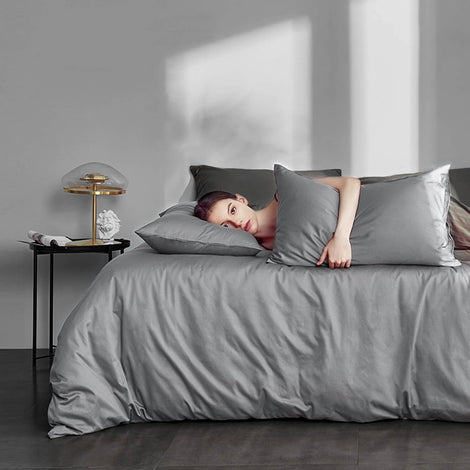Drinking more water is good for your health, Does it help with sleep?
Drinking water is vital to overall health. Water makes up 60 percent of the body, and it helps with a variety of body functions - from cell growth to waste removal to digestion. Sleep duration has been linked to many health problems, including obesity, diabetes, cardiovascular disease and chronic kidney disease. However, exactly how sleep affects a person's hydration status has not been extensively studied. We know that water is an important component of the body and an important resource that influences hydration. Therefore, a deeper understanding of these factors is critical to understanding hydration, especially to help us reduce urinary tract infections and avoid serious consequences such as kidney stones.
What science says about hydration and sleep?
Research on the relationship between hydration and sleep is limited. However, the evidence to date suggests that there is a relationship between the two, with short sleep duration being associated with a low hydration status.
A new study published in Sleep investigated the relationship between sleep duration and urinary hydration status in US and Chinese adults. The risk of dehydration was higher when sleep was consistently interrupted at night. Sleep duration was also associated with many different health problems, including obesity, diabetes and chronic kidney disease. However, the effect of sleep on hydration status in adults still needs to be studied in more depth.
This study included more than 20,000 adults, including samples of adults from the Kailuan Study in China and the National Health and Nutrition Examination Survey in the United States. Participants provided urine samples and responded to a survey about sleep habits, which were referred to researchers for analysis and understanding of hydration biomarkers. The researchers used the urine measurements and questionnaire results to understand their hydration levels.
Fatigue after a short sleep may also be due to dehydration
The study hypothesized that the shorter the sleep period, the higher the urine concentration and the less hydration. The results of the study suggest that people who don't feel well after a night of sleep may not only have poor rest, but also not be well hydrated.
The reason sleep affects hydration is related to hormonal changes in the body. Vasopressin is a releasable hormone that regulates hydration in the body. It is released during the day and at night. In this study, researchers studied the nocturnal release of this hormone during short sleep.

In any case, the implications of this study for society are clear. The study recommends that people should focus on getting enough sleep to avoid dehydration. The association between kidney health and insufficient hydration is clear and needs to be considered a serious health problem. If dehydration occurs or you feel too tired, like people who are sleep deprived, be sure to stay hydrated the next day by drinking more water to maintain good health.
However, drinking too much water before bed can also interfere with sleep,After all, if your bladder wakes you up, you won't sleep well at night.
In other words, shorter sleep times can actually lead to dehydration.
Does dehydration disrupt sleep?
While research hasn't answered all the questions surrounding how hydration affects sleep, experts do know a lot about what can go wrong with sleep when you're dehydrated (and if you drink too much water). Even mild symptoms of dehydration can negatively affect sleep due to discomfort.
Dehydration can cause the following symptoms, which can disrupt sleep
Muscle cramps Dehydration can cause muscle cramps, making it difficult to fall asleep or potentially wake up in the middle of the night. Keep in mind that 76 percent of muscle mass is water, according to a review of studies published in Nutrients in August 2019.
Muscle cramps Muscle cramps are another symptom of dehydration, sometimes causing painful tightening of calf or foot muscles that may wake a person up in the middle of the night.
Headaches Headaches and migraine attacks can complicate falling asleep and staying asleep.
Morning thirst Thirst may cause someone to wake up in the middle of the night or early in the morning.
Dry mouth Dry mouth can also cause discomfort and may worsen sleep.
Can drinking too much water disrupt sleep?
It's certainly possible to overdo your water intake before bed. If you drink too much water at night, it can disrupt sleep because you may need to go to the bathroom in the middle of the night to urinate, or make two trips." It even has a name - nocturia - which can be a bigger problem for people who find it difficult to go back to bed after using the bathroom.
Pedre agrees that drinking too much water, mainly late at night or close to bedtime, can have a negative impact on sleep. Several earlier studies (one involving dogs and one involving 14 adult men) have shown that the kidneys filter more blood, which fills the bladder faster and increases urine output, when subjects are in a prone position (lying on their backs) rather than in a supine position (lying on their backs, facing upward).
In any case, the implications of this study for society are clear. The study recommends that people should focus on getting enough sleep to avoid dehydration. The association between kidney health and insufficient hydration is clear and needs to be considered a serious health problem. If dehydration occurs or you feel too tired, like people who are sleep deprived, be sure to stay hydrated the next day by drinking more water to maintain good health.
Oringinal link: https://www.everydayhealth.com/sleep/how-does-hydration-affect-your-sleep/
Editor’s Picks
-
Pink
-
Brown
-
Red
-
White
- Navy BlueBlackYellowGrayDark GreenSilverPurpleOlive GreenTaupeEggplant PurpleLight PurpleRoyal BlueSage GreenGolden BrownSea GreenAqua BlueLight YellowOrangeLight Pink
Satin Pillowcases with Envelope Closure|NTBAY®️ - Brown
- From $15.99
- From $15.99
- Unit price
- / per
- From $15.99
- From $15.99
- Unit price
- / per
-
Pink
-
Brown
-
Red
-
White
- Navy BlueBlackYellowGrayDark GreenSilverPurpleOlive GreenTaupeEggplant PurpleLight PurpleRoyal BlueSage GreenGolden BrownSea GreenAqua BlueLight YellowOrangeLight Pink
NTBAY 2-Pack Cotton Pillowcases – Soft, Smooth & Breathable
- From $17.99
$26.99- From $17.99
- Unit price
- / per
- From $17.99
$26.99- From $17.99
- Unit price
- / per
-
Purple
-
White
-
Royal Blue
-
Aqua Blue
- PinkBlackRedYellowOrangeBrownKhakiSage GreenLight GrayDark BrownTan OrangeDark GraySky BlueSmoke GrayNavy BlueMagentaWine RedIvorySea GreenCoral PinkBurnt OrangeSlate BlueBlush PinkOlive GreenDark GreenGinger YellowLight Purple
100% Microfiber Body Pillowcase with Envelope Closure|NTBAY®️ - Purple
- $15.99
$22.99- $15.99
- Unit price
- / per
- $15.99
$22.99- $15.99
- Unit price
- / per
-
Purple
-
White
-
Royal Blue
-
Aqua Blue
- PinkBlackRedYellowOrangeBrownKhakiSage GreenLight GrayDark BrownTan OrangeDark GraySky BlueSmoke GrayNavy BlueMagentaWine RedIvorySea GreenCoral PinkBurnt OrangeSlate BlueBlush PinkOlive GreenDark GreenGinger YellowLight Purple
Ultra Soft Satin Body Pillowcase – Smooth & Cozy with Envelope Closure|NTBAY ®️
- $14.99
$23.99- $14.99
- Unit price
- / per
- $14.99
$23.99- $14.99
- Unit price
- / per
-
Pink
-
Silver
-
Wine Red
-
Dark Green
- YellowGrayGolden BrownRoyal BlueNavy BluePurpleOrangeBlackWhiteSea Green
3/4 Pieces Silky Satin Twin Cooling Soft Bed Sheet Set|NTBAY®️ - Pink
- From $40.99
$40.99- From $40.99
- Unit price
- / per
- From $40.99
$40.99- From $40.99
- Unit price
- / per
-
Pink
-
Silver
-
Wine Red
-
Dark Green
- YellowGrayGolden BrownRoyal BlueNavy BluePurpleOrangeBlackWhiteSea Green














